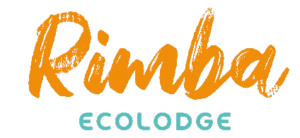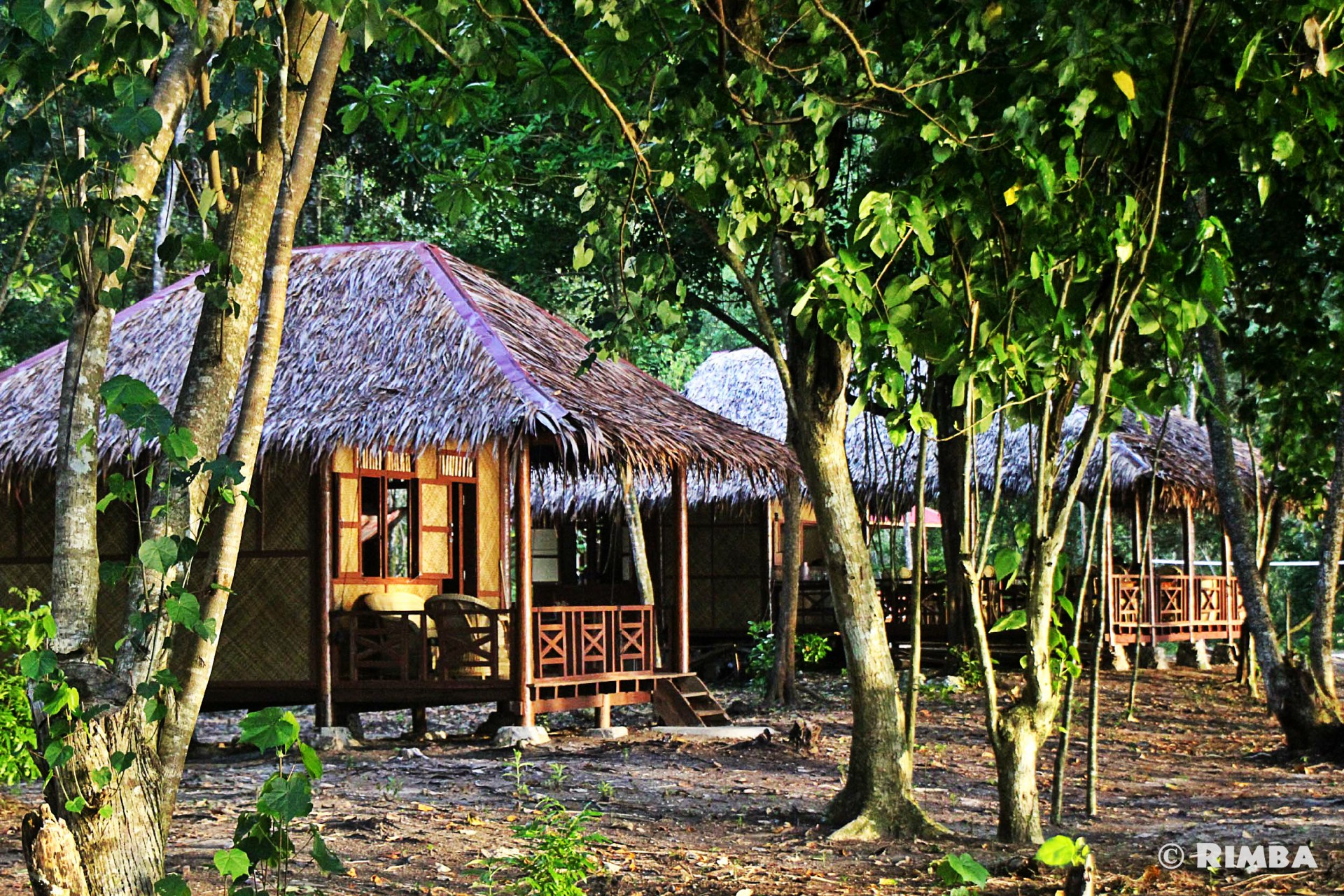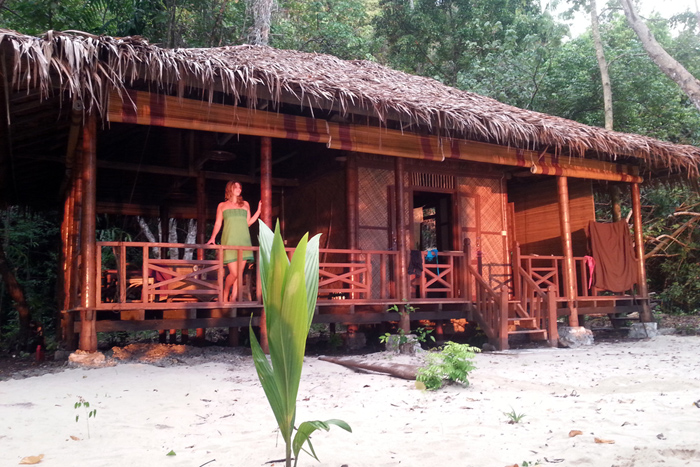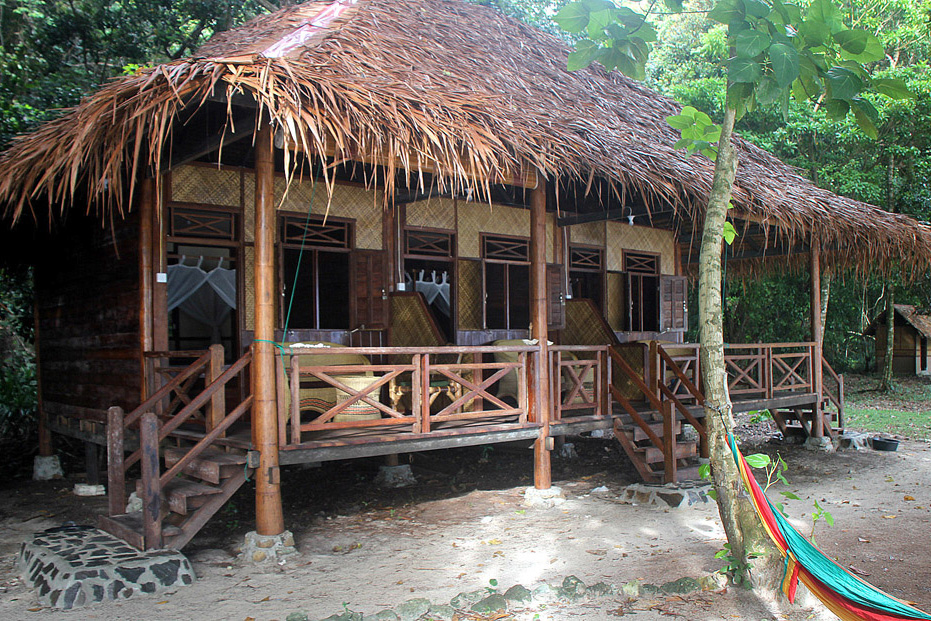RIMBA ECOLODGE
Muaro Duo Beach
Sungai Pisang village Bungus – West Sumatra – Indonesia
Whatsapp : +62 821-7082-6361
This is a “Visa On Arrival” valid for 30 days. It is available at all the country’s entry points (seaports and airports). Its cost is US $35 (30 Euros) for 30 days and can be extended only once for another 30 days on site (make the request to an immigration office). To facilitate the formalities for obtaining this visa we recommend you to have the exact amount in US Dollars (Euros are also accepted), to avoid any difficulty of change. Credit cards are not accepted.
Please note : If you overstay your visa, a penalty of 1 million rupiahs (around €66) is payable on departure for the first 60 days of overstaying. After 60 days, the offender will be expelled from the country and banned from entering Indonesia.
VACCINES
No vaccinations are required for travelers from Europe. But it is recommended to be vaccinated for :
MALARIA
It is recommended for all the duration of your stay in Indonesia, to take a treatment for malaria. The whole country is classified as “Zone 3” (except Bali and big cities). Transmission occurs only from sunset to sunrise. Make enquiries with your doctor before departure. Preventive treatments recommended for this area are :
The best prevention remains the protection against mosquitoes : Mosquito nets and clothes impregnated with insecticide, spray or cream for skin. Many of mosquito repellants sold in supermarkets and pharmacies are not or insufficiently effective. Choose only the range of products complies by WHO as Insect Ecran®. It will be essential not only for malaria but also for dengue, chikungunya and Japanese encephalitis present in Indonesia.
SAFETY
Indonesia is a safe country and tourists are warmly welcome. As always when traveling, it is prudent not to show his wealth in an exaggerated way and to be vigilant in crowded places, markets, downtown … (pickpocket).
The currency is the Indonesian Rupiah (IDR). The average exchange rates are about 16,000 Rupiah for 1 Euro and 14,000 Rupiah for 1 Dollar. To check the exact exchange rate before departure, you can use this currency converter :
ATM machines are available in all cities of Indonesia. Euros and Dollars are accepted only in large hotel structures. So we recommand to change it into Rupiah upon arrival at the airport or in an exchange counter that can be found in most of cities.
To change your money in Padang, the easiest way is to do it directly at the airport, especially since the exchange rate is more interesting than in most of conventional exchange counters in town. In Padang you can change at Yani Homestay.
You will find ATMs in Padang and Bungus, one of which is located 50m from the place to take the boat to Rimba. This ATM accepts Visa and Mastercard.
The telephone network is very extensive and accessible almost anywhere. The telephone prefix for Indonesia is 0062 or +62.
If you make a long stay, you have any interest in buying an Indonesian Sim card sold in countless mobile phone shops. Sim card costs is only 5 000Rp. Ask the merchant to add phone/internet credit. The operator covering our entire region is Telkomsel.
Islam is the predominant religion in Indonesia. Nothing is imposed to tourists but it’s important to respect the beliefs and customs of the population, especially in terms of clothing.
On our site and on the surrounding small islands there is no dress code demanded. However, in cities and even more in the villages, it is recommended that women avoid sleeveless outfit, plunging necklines, short skirts and mini-shorts. Outside touristic beaches it’s advised to swim at least with a short and a tank top. For men, except on the beach, it’s recommended to not be shirtless and not wear shorts too short (like cycling shorts or running shorts). For swimming a “board short” would be ideal.
So that we can maintain good relations with the villagers, we would ask you to follow these few dress codes on field trips that lead us through the villages.
To greet someone, just shake him hands (use the right hand) and definitely not kiss him !
If you give or receive something from someone, do it with the right hand. In Indonesia, it is very rude to use his left hand. Similarly, use the right hand to eat if you don’t have cutlery.
If you are invited to drink some tea or coffee in somebody’s house, wait that your host started drinking before doing the same.
In Indonesia, it is customary to remove shoes before entering a home or in some public places such as internet cafes. If you are unsure, look at the front of the door. If you see a bunch of shoes, so you can let yours there. :)
Indonesia has officially 583 languages and dialects, but in reality there would have over 700 (Source: SIL International), making it one of the most diverse countries in the world at the linguistic level.
The official language is Indonesian language also known as “Bahasa Indonesia“ and that allows to the different populations that inhabit this country to communicate each other. This is a variety of standardised and formalised Malay. This language was developed as Esperanto, from the various Indonesian dialects, therefore simple and in principle with not many exceptions. It’s a language close to all varieties of Indonesian languages and not belonging to any particular group. So it’s a language considered as “neutral” for all Indonesian languages.
In 1928, at the beginning of the struggle for independence, the young Indonesian nationalists created the first linguistic congress that allowed the national language (Malay) to lay the foundations of an operation designed to develop an orthography (with the use of the Latin alphabet, and no longer Arabic), a grammar and vocabulary adapted to modern life. They called their language Bahasa Indonesia (“Indonesian language”). Bahasa Indonesia was invented to serve to symbolize national unity. Faced with the great linguistic diversity of the country, the official Indonesian language allows overcomes the barriers of misunderstanding.
Many foreign language inputs have also contributed to the creation of the Bahasa Indonesia and so trace the history about the multiple contacts of the archipelago with the outside world. Indeed, we find there many words in Dutch, Arabic, Portuguese, English…
The article 36 of the Indonesian Constitution proclaimed the Indonesian language as “state language” in 1945. It was not until 1955 that this language was officially called Bahasa Indonesia and that the Government undertook its codification, normalization and expansion. Its evolution will continue a long time since it’s estimated to 130,000 new terms created between 1951 and 1964.
Therefore, Bahasa Indonesia is a very recent language. The official 1990 census revealed that 71% of Indonesians speak Bahasa Indonesia as a second language after their local dialect and 25% totally ignore the national language.
(Source : http://www.tlfq.ulaval.ca/axl/asie/indonesie.htm)
PRONUNCIATION
“U” is pronounced “ou” as in “course”
“C” is pronounced “tch” as in “watch”
“J” is pronounced “dj” as in “jealous”
“G” is pronounced “g” as in “goal”
“K” at the end of a word is not pronounced
AT RESTAURANT
I’m hungry : saya Lapar
I thirsty : saya haus
I would like to eat… : saya mau makan…
I would like to drink… : saya mau minum…
It’s good : enak
Breakfast : sarapan
Lunch : makan siang
Dinner : makan malam
Rice : nasi
Noodles : mie
Fruit : buah
Chicken : ayam
Pork : babi
Meat : daging
Shrimp : udang
Squid : cumi-cumi
Fish : ikan
Egg : telur
Soup : sop
Fried : goreng
Grilled : bakar
Vegetable : sayur
Potato : kentang
French fries : kentang goreng
Banana : pisang
Pineapple : nanas
Watermelon : Semangka
Jackfruit : nangka
Mango : manga
Orange : jeruk
Orange juice : es jeruk
Raisin : anggur
Apple : apel
Coconut : kelapa
Tea : teh
Coffee : Kopi
Pepper : merica
Salt : garam
Piment : cabe
Spicy : pedas
MEANS OF TRANSPORT
Plane : pesawat
Bus : bis
Car : mobil
Train: kereta api
Motorbike : motor
Bike : sepeda
Ticket : tiket
I want to go… : saya mau pergi ke…
Where is… : di mana…
How many km : berapa kilometer
How long : berapa Lama
SALUTATIONS
Good morning (until 11am) : selamat pagi
Good afternoon (from 11am to 02pm) : selamat siang
Good afternoon (from 02pm to 05pm) : selamat sore
Good evening (from 05pm) : selamat malam
Good night: selamat tidur
Welcome : selamat datang
Goodbye : selamat jalan (for the person who stay) and selamat tinggal (for the person who leave)
See you : sampai Jumpa
Thank you: terimah kasih
Please: tolong
Excuse me : permisi
Sorry : ma’af
NUMBERS
1 : satu
2 : dua
3 : tiga
4 : empat
5 : lima
6 : enam
7 : tujuh
8 : delapan
9 : sembilan
10 : sepuluh (puluh = dizaine)
11 : seblas
12 : dua belas
13 : tiga belas…
20 : dua puluh
21 : dua puluh satu
22 : dua puluh dua…
30 : tiga puluh…
100 : seratus
200 : dua ratus…
1 000 : seribu
2000 : dua ribu…
10 000 : sepuluh ribu
1 000 000 : satu juta
Exemples :
26 : dua puluh enam
250 : dua ratus lima puluh
1 348 : seribu tiga ratus empat puluh delapan
2 500 000 : dua juta lima ratus ribu
TIME
Monday : senin
Tuesday : selasa
Wednesday : rabu
Thursday : kamis
Friday : jum’at
Saturday : sabtu
Sunday : hari minggu
Hour : jam
Day : hari
Week : minggu
Month : bulan
Year : tahun
PRONOUNS
I / me / my : saya or aku
You / yours : kamu
He / she : dia
We / ours : kita
You / yours : kalian
They / them : mereka
Who : siapa
What : apa
How : bagaimana
When : kapan
Why : kenapa
Which : yang mana
This : yang ini
How much : berapa
Where : di mana
IN TOWN
Bank : bank
Hospital : rumah sakit
House/Home : rumah
Embassy : keduta’an
Pharmacy : apotek
Post office : Kantor Pos
Market : pasar
Hotel : hotel
Homestay/Guesthouse : losmen
Train station : stasiun Kerata api
Bus station : stasiun bis
Airport : bandara
Police office : kantor polisi
Phone : telepon
Toilets : kamar kecil
Bathroom : kamar mandi
Restaurant : rumah makan
Small restaurant : warung
USEFUL
Yes : ya ; No : Tidak
What’s that : apa itu
I don’t know : saya tidak tahu
I don’t understand : saya tidak mengerti
No problem : tidak apa-apa
Be careful : hati-hati
I’m sick : saya sakit
Friend : teman
Husband/Wife : suami/istri
Child : anak
I like : saya suka
I don’t like : saya tidak suka
It’s beautiful : indah
Hot : panas
Cold : dingin
It’s expensive : mahal
THE PRESENTATIONS
What’s your name : siapa nama kamu
My name is : nama saya
How old are you : umur kamu berapa
Where do you come from : kamu dari mana
I come from : saya dari (UK : Inggris, Netherland : belanda, Germany: Jerman)
How are you : apa kabar
I’m fine : baik-baik
Whatsapp : +62 821-7082-6361




